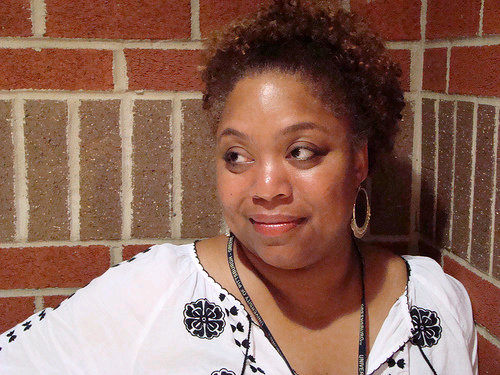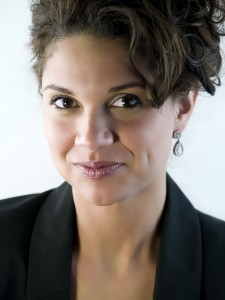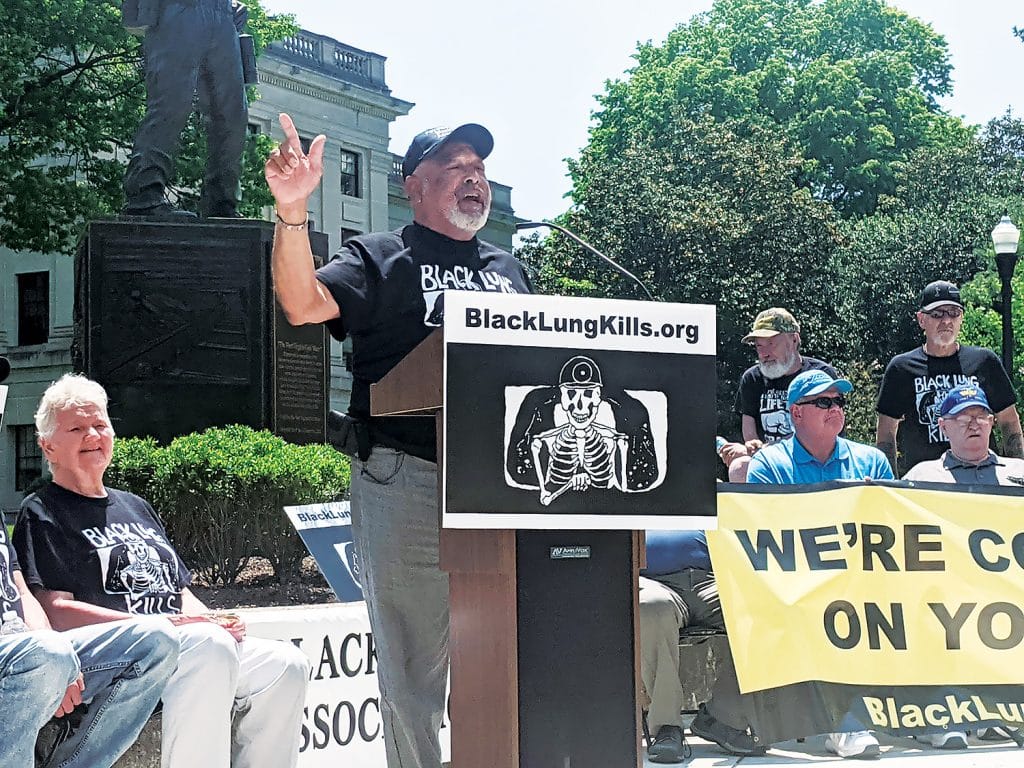Amazing Affrilachians
Kelly Ellis | Helping Students Tell Their Stories
By Jillian Randel
Kelly Ellis’s legs were shaking the first time she got up to do a poetry reading. She was working on her PhD at the University of Kentucky when Frank Walker X— a student in the graduate program and also program coordinator of the Martin Luther King, Jr. Cultural Center—asked her to do an open mic night. “Why are you asking me?” said Ellis. “You just act like a writer,” replied Walker.
Ellis and a group of other minority students and staff members started meeting regularly- including poets such as Crystal Wilkinson and Nikky Finney. They finally became known as the Affrilachians- a term coined by Walker.
“[The Affrilachian Group] was supportive and made me feel like I was a writer,” said Ellis. “Having people respond to my work in a positive way made me keep going.”
The women in Ellis’s family were natural storytellers. She always wanted to be a writer, and started taking creative writing classes at UK around the time she helped found the Affrilachians.
“There had to be a space for non-white writers and artists in the region, because we were ignored,” said Ellis. “It was assumed there weren’t a lot of black people in Appalachia. When Frank gave us a name and said, ‘you belong here, you have always been here,’ it gave us permission then to identify people and ourselves as black Appalachians— and extended that to other artists of color.”
“Writers and artists need communities. It doesn’t mean you’re all the same, but you have a place where people recognize you are an artist. If you’re by yourself it can be really lonely. You keep your art secret or hidden in a journal or sketchbook. You won’t dance because you think no one else is dancing.”
Ellis is an associate professor of English and creative writing at Chicago State University, as well as the associate director of the MFA Creative Writing program.
“I learn so much helping my students claim their voices,” said Ellis. “But it’s also about what I learn about who were are as human beings and how important it is for people to be able to tell their stories. I don’t want just a few people to have access to the power of language and words- that is every body’s right.”
“I work with different races and ethnicities, and everybody has a story and these stories amaze me and make me think about my own humanity. Even though we are all different, we are all the same.”
Ellis is currently working on a book called The Shoe Cobbler’s Daughter– a collection of poems about her grandfather’s life. She is also working on an anthology of black writers in Appalachia, titled Brown Country.
Crystal Good | Changing the Community through Creativity
By Jillian Randel
When Crystal Good was ten years old and her best friend was hit by a car, her reaction was to rally for speed bumps in her town. It showed Good that she had a voice and ideas to bring to the table and was an early demonstration of the values that would shape her life and the positive contributions she would make to her community.
A West Virginia native, Good had learned very little about African Americans in her region, though aware of a rich history.
“I was a poet and trying to find somebody else like me,” said Good. “I found the Affrilachian poets. They were working to preserve and share the history, and not just in an African American context, but people from Native American or Hispanic backgrounds, too.”
Good has always had a passion for sharing her poetry with others. “Twelve years ago I did my first poetry slam,” said Good. “There were open invitations to poets and the people who came out to those first few are now good friends of mine. Now I’m thinking about how to put together a show that fuses music, multimedia and poetry.”
Growing up near chemical plants in Charleston, W.Va. and seeing her parents work in them put environmental and human health dangers on the forefront of her mind.
As Vice President of Create West Virginia- a grassroots initiative to build the new, creative economy of WV- she looks for ways to build an economy outside of the traditional manufacturing jobs that can have negative effects on her community. They look to engineers, doctors, technologists and the arts as alternative forms of economy.
“What if we didn’t build a plant but something intellectual and creative in our economy?” said Good. “I am really interested in the diversity aspect of that because ideas comes from the diversity of people who have different backgrounds and that will help us solve some of the challenges that are before us.”
Good is the recipient of numerous awards for her community organizing including the Charleston Black Ministry’s Community Trailblazer Award. She was honored along with nine other women, significant because prior to that, only one female had been honored the award.
“It comes from many years of work, value of diversity and trying to speak representation and finding my way to projects and giving a voice there- somewhat fearlessly at times,” said Good.
On top of being a mother of three boys, Good works as Director of Brand Experience for a marketing firm called Mythology.
“I can’t imagine not being engaged in the community and having my own passions and not raising my boys with this perspective. It’s all about hard work. It’s the value I come from- not an option- it’s the way I’m wired.”
Related Articles
Latest News

Leave a comment
Your email address will not be published. Required fields are marked *
One response to “Amazing Affrilachians”
-
I am so charged about learning of the the Affrilachian Group, its work, and goals through Adam Booth’s storytelling course outline (Shepherd University) that lists Lyn Ford’s Affrilachian Tales. That led me to this Web site. I’m hoping that the Affrilachian group is still operating and that I can join. Possibility?
I recently started a storytelling group in Hagerstown, MD, The Christian Storytelling Cafe, and very soon will be launching the Hagerstown Storytelling Society. I need much support in my organizational efforts, and this group sounds as if it has the experience–and warmth– that anyone could need.
I am eager to get a response: Faith Johnson Crumbly: Ustoryteller@hotmail.com; 301-797-1537.







Leave a Comment